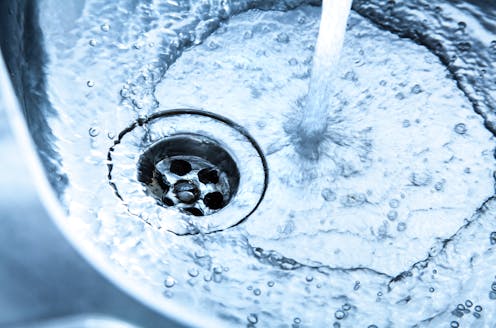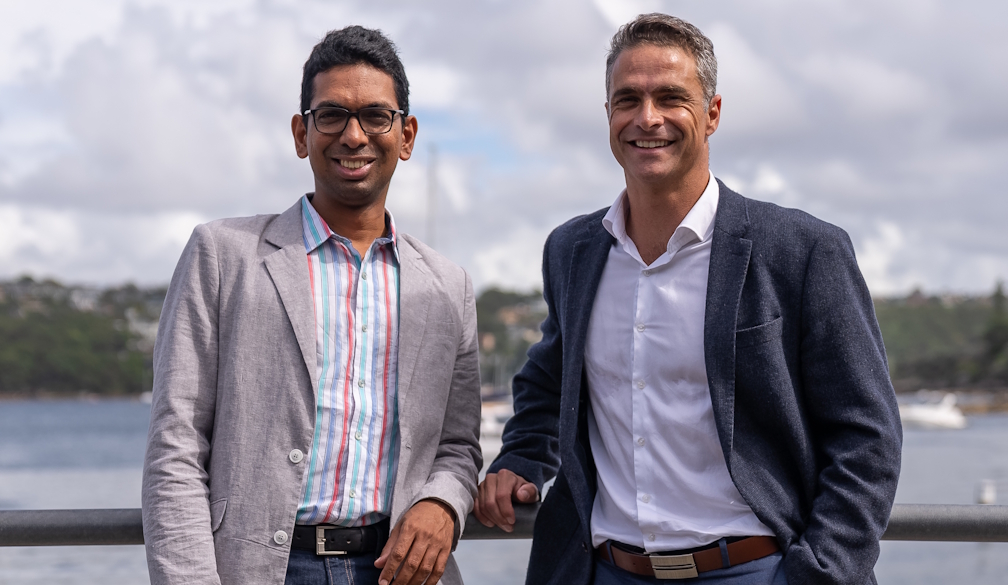How to provide reliable water in a warming world – these cities are testing small-scale treatment systems and wastewater recycling
- Written by Lu Liu, Assistant Professor of Civil, Construction and Environmental Engineering, Iowa State University

A lot can go wrong in a large urban water system. Pumps malfunction. Valves break. Pipes leak. Even when the system is functioning properly, water can sit in pipes for long periods of time. Water shortages are also a growing problem in a warming world[1], as communities across the Southwestern U.S. and in many developing nations are discovering.
That’s why cities have started experimenting with small-scale alternatives – including wastewater recycling and localized water treatment strategies known as decentralized or distributed systems.
I study large- and small-scale water systems[2], focusing on innovative system designs that allow local use of water sources that might otherwise go to waste. As technology improves, cities are discovering something that rural communities have long known[3]: Small-scale water treatment, properly engineered[4], can be cheaper and easier to maintain than a centralized system, and it can improve water security and even the environment[5].
Cleaning water – nature’s lessons
Almost all water has value and can be cleaned and put to use.
Nature does a great job of cleaning water naturally[6] as it flows through the ground. The soil physically filters water, and chemical and biological processes help strip away contaminants over time.
Those processes can be mimicked[7] by water treatment plants and filters that are becoming increasingly effective.
An illustrated tour of how water treatment systems generally work.Traditionally, cities have relied on centralized water systems[8] that treat freshwater from a river or aquifer at a central facility, then distribute it through a large network of pipes. But that infrastructure becomes increasingly vulnerable to disruptions as it ages. And climate change, water scarcity and population growth increase stress on the system.
So, some cities are experimenting[9] with what are known as distributed systems. These are small-scale water treatment, reclamation and recycling plants that are designed to collect, treat and reuse water in close proximity to both the source and the user. Some are separate operations[10]. Others are connected to the larger system in a hybrid model.
For example, a decentralized system might treat wastewater in an urban area and recycle it for reuse within that area by the same users, as El Paso, Texas[11], is doing. Or it could collect storm runoff and wastewater[12] from homes and redirect it specifically for irrigation or to recharge groundwater[13], as Austin, Texas[14], and San Francisco[15] do.
Water recycling in Windhoek, Namibia, where freshwater is scarce.Windhoek, Namibia[16], a city of about 430,000 people surrounded by an arid landscape, has been treating wastewater to achieve a drinking standard and returning it to homes since 1968 for all kinds of uses, including cooking and drinking. Storm water runoff, industrial water, wastewater and even agricultural runoff can be treated and recycled with modern technology[17] to become drinkable.
All of these approaches, whether connected to the main system or as separate closed systems, can reduce the community’s overall demand for freshwater from rivers or aquifers.
Technology is making more water more reusable
Small-scale treatment can range from advanced filters inside individual homes to treatment at tanks serving clusters of homes or commercial, industrial and agricultural facilities.
Often, the treated water goes to non-potable uses like toilet flushing[18] or to replenish groundwater. But advances in technology[19] are making these decentralized water systems more feasible and expanding their uses.
Membrane-based and electrochemical processes[21] have shown great potential for recovering fresh water, nutrients – which can be used for fertilizer – and energy from wastewater. These processes include reverse osmosis, which pushes water through a semipermeable membrane to remove impurities, and electrodialysis, which uses an electric field.
Microbial fuel cells go a step further and use the microbes present in wastewater to both produce electricity and facilitate the treatment of wastewater simultaneously. Another energy recovery method involves capturing biogas, primarily methane, from decomposing organic matter in wastewater in the absence of oxygen.
Unlike conventional treatment technologies, which work on a large scale, these emerging treatment processes use modular designs that can be easily scaled up or down.
Additionally, decentralized systems can be supported by water softener installation to improve water quality, especially in areas where mineral content is high. These hybrid systems can supplement large centralized systems with treated water, particularly in arid regions where water supplies are scarce.
How a hybrid system might help Houston
To test how a hybrid system might help avoid water shortages due to disruptions to the system, my colleagues and I created a model of Houston[22], a city with 7,000 miles of pipelines and 2.2 million residents. We simulated the impact that different types of water outages can have on that large centralized water supply and how distributed sources could help reduce the impact.
Overall, we found that installing hybrid systems did a better job supplying water and avoiding low flows across the city than the centralized system alone, particularly in areas where low water pressure is common.
The pressurized flow from reclaimed water could also limit the spread of contamination from sources such as a terrorist attack in the vicinity of the reclaimed water source.
That doesn’t mean new water sources are risk-free, of course. Additional sources connecting to a large water system can also introduce new potential sources of contamination, so the design of the system is important.
Several factors determine how effective distributed water can be[24]. Population and building density, local water demand, soil characteristics, climate conditions, infrastructure and the state of existing water infrastructure all play a role. Research indicates that regions with high energy demands[25] for water distribution, significant local water requirements and the capacity to reuse wastewater stand to gain the most[26].
Notably, San Francisco has emerged as a pioneer[27] in extreme decentralization[28], with initiatives extending down to the individual building level. In some buildings, water tanks, filters and treatment in the basement make water reusable for activities such as flushing toilets[29].
What’s standing in the way?
Despite the benefits, water reuse accounts for less than 1% of total water use in the U.S. today.
Public perceptions concerning recycled water[32] are one challenge, including enduring skepticism[33] regarding the safety, reliability and appropriate use of reclaimed water.
Wastewater recycled properly is considered safe to drink and may even contain less toxic risk[34] than the sources of water we already drink. However, water that is not treated to the appropriate level can pose significant human health risks[35]. A robust business model[36] is also needed to make decentralized systems[37] cost-effective, coupled with a supportive governance structure.
As federal funds[38] pour in to revitalize America’s water infrastructure, U.S. communities have a golden opportunity to bolster their large water systems with a decentralized approach. Globally, with climate change fueling extreme storms and making water supplies less reliable in many areas, small-scale decentralized systems could provide water security and increase water access in areas that are underserved today.
References
- ^ growing problem in a warming world (e360.yale.edu)
- ^ study large- and small-scale water systems (www.ccee.iastate.edu)
- ^ rural communities have long known (www.epa.gov)
- ^ properly engineered (doi.org)
- ^ even the environment (doi.org)
- ^ great job of cleaning water naturally (www.youtube.com)
- ^ can be mimicked (smartwatermagazine.com)
- ^ centralized water systems (infrastructurereportcard.org)
- ^ cities are experimenting (doi.org)
- ^ Some are separate operations (doi.org)
- ^ El Paso, Texas (www.epwater.org)
- ^ collect storm runoff and wastewater (doi.org)
- ^ redirect it specifically for irrigation or to recharge groundwater (smartwatermagazine.com)
- ^ Austin, Texas (www.austintexas.gov)
- ^ San Francisco (www.sfexaminer.com)
- ^ Windhoek, Namibia (www.umontpellier.fr)
- ^ can be treated and recycled with modern technology (efcnetwork.org)
- ^ non-potable uses like toilet flushing (doi.org)
- ^ advances in technology (doi.org)
- ^ Jose Jordan/STR/AFP via Getty Images (www.gettyimages.com)
- ^ Membrane-based and electrochemical processes (doi.org)
- ^ a model of Houston (www.nature.com)
- ^ Songphol Thesakit/Moment via Getty Images (www.gettyimages.com)
- ^ factors determine how effective distributed water can be (doi.org)
- ^ high energy demands (doi.org)
- ^ stand to gain the most (doi.org)
- ^ San Francisco has emerged as a pioneer (smartwatermagazine.com)
- ^ extreme decentralization (e360.yale.edu)
- ^ reusable for activities such as flushing toilets (www.cbsnews.com)
- ^ David Yu/Flickr (www.flickr.com)
- ^ CC BY-NC (creativecommons.org)
- ^ Public perceptions concerning recycled water (doi.org)
- ^ enduring skepticism (decentralizedwater.waterrf.org)
- ^ may even contain less toxic risk (engineering.stanford.edu)
- ^ can pose significant human health risks (nap.nationalacademies.org)
- ^ robust business model (straitsresearch.com)
- ^ needed to make decentralized systems (www.wateronline.com)
- ^ federal funds (www.epa.gov)








